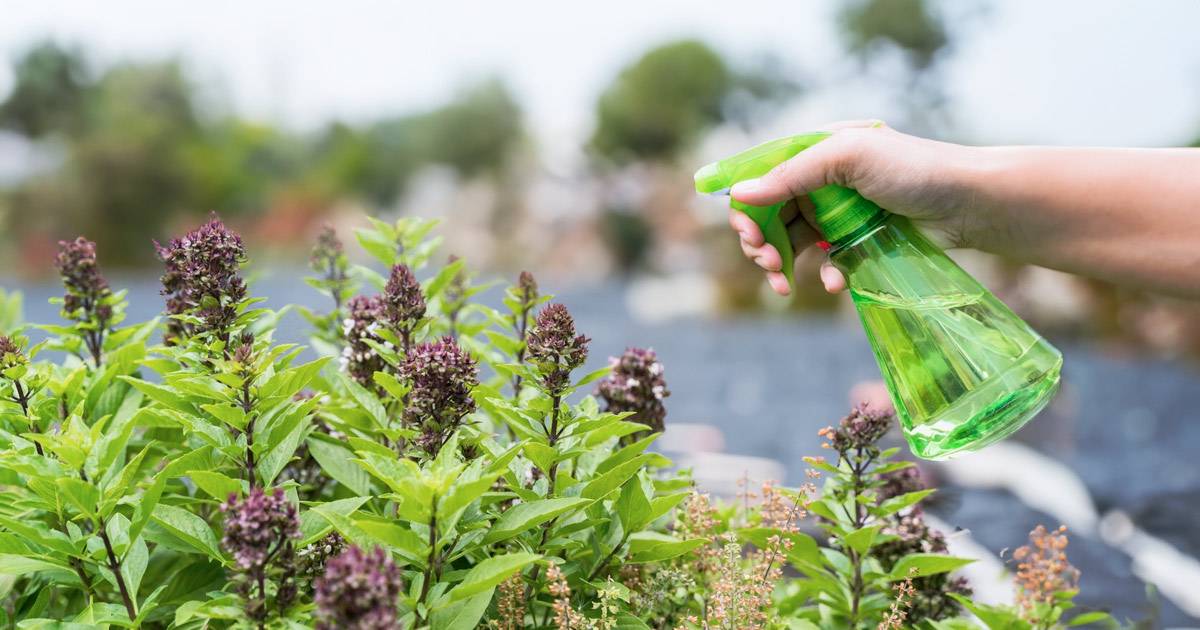Does Mosquito Spray Kill Bees: Using Bee Friendly Solutions

Using insecticides for fogging or spraying to control mosquitoes or biting flies in your yard and garden like a simple mosquito spray can kill bees. Even if efforts are made to avoid flowering plants and applications are conducted after sunset, the risk persists. Insecticides administered as a fog or mist may drift onto flowering plants located within a radius of 100 meters or more, depending on wind speed and direction.
This drifting insecticide poses a serious risk, potentially contaminating pollen and nectar collected by bees for an extended period, ranging from days to weeks after application. Additionally, the residue left on leaves can prove toxic to caterpillars, impacting them for weeks or even months. Certain butterfly species’ caterpillars are particularly vulnerable to the lingering effects of insecticide residue on leaves.
What’s in Mosquito Sprays?
Many residential mosquito control companies utilize insecticides called pyrethrins, derived from chrysanthemum flowers, or more commonly, synthetic pyrethroids. These broad-spectrum insecticides, whether natural or synthetic, are highly toxic to a wide range of insects, not just mosquitoes. Major companies like Mosquito Joe, Mosquito Squad, and Mosquito Authority include pyrethrins and pyrethroids in their standard treatments. While these pesticides are regulated and approved by the Environmental Protection Agency (EPA), it’s essential to note that their use can still have negative environmental consequences, despite meeting regulatory standards.
How Does Spraying for Mosquitoes Hurt Bees and Other Wildlife?
Regulatory agencies primarily focus toxicity testing on domesticated honey bees due to their crucial role in agriculture and food production through pollination services. Research reveals widespread contamination of honey bee hives with toxic pyrethroids, present in pollen, beeswax, and on bees themselves at levels that can be lethal or harmful.
Even minimal residual doses from mosquito spray chemicals can disorient honey bees, hindering their return to the hive. Studies show that tiny amounts of permethrin (0.009 micrograms per bee) or deltamethrin (0.0025 micrograms per bee) can cause significant disorientation, with potential implications for declining global bee populations and the associated threats to food security and nutrition. It is imperative to avoid further harm to bees.
How to Control Mosquitoes Without Harming Bees
Preserving wildlife is a shared concern, yet the majority of purported “natural” remedies fall short of expectations. Despite attempts with Citronella candles and lemongrass oil, individuals often find themselves without relief, ultimately resorting to conventional, potentially harmful sprays. Here, we present three bee friendly mosquito control alternatives to break this cycle.
Using an Electric Fan
Instead of spending a significant amount on pest control, consider investing in an electric floor fan for a surprising reason. While wind can disrupt a mosquito’s ability to fly, a medium to high-speed fan can also aid in dispersing and diluting the carbon dioxide emitted by your body, which is attractive to mosquitoes.
Researchers at Michigan State University conducted experiments with carbon dioxide-emitting mosquito traps alongside basic three-speed floor fans, finding that the wind generated by the fans reduced the number of mosquitoes captured in the traps. Their conclusion suggests that using fan-generated wind is a practical and effective way to protect humans and pets from mosquitoes in outdoor settings. Simply strategically placing one or two fans around your deck or porch can provide instant and bee-safe mosquito control.
Native Rain Garden
Understanding that not everyone can install a native rain garden, BTI (Bacillus Thuringiensis subspecies Israelensis) offers a practical alternative for those seeking quicker relief or unable to invest extensive time and money in landscaping. BTI, a bacterium naturally occurring in soil, specifically targets mosquito and black fly larvae without harming other organisms. Available in granules, such as the product “Mosquito Bits,” it’s easy to apply to muddy, shady areas with standing water.
A study by Frank Aletru, president of France’s national beekeeping union, revealed no adverse effects on bees in areas treated with high amounts of BTI. Many of our beehive rental clients use BTI without observing negative side effects in our hives. While BTI is safer and more cost-effective than hiring a pest control company, we still recommend eliminating standing water sources whenever possible.
Native Plants in Standing Water
Mosquitoes thrive in standing water, so it’s crucial to inspect your yard for poor drainage areas after heavy rain, even temporary puddles can become breeding grounds in as little as eight days! A rain garden filled with native plants acts as a natural mosquito control solution by absorbing rainwater. Not only does it minimize standing water, but it also supports pollinators like bees, moths, birds, and more.
Recommended plants for rain gardens, such as Virginia Sweetspire and Sweet Pepperbush, contribute to both the garden’s beauty and mosquito control. Additionally, densely-planted native vegetation provides habitat for natural mosquito predators like frogs and lizards, restoring ecological balance in your backyard. However, this approach is most effective when combined with eliminating other standing-water sources, such as emptying saucers, cleaning gutters, sealing rain barrels, and securing pet bowls and buckets.
Quitting Mosquito Spray to Protect Bees
Take a stand against harmful mosquito control practices that endanger bees and wildlife. Instead of resorting to conventional insecticides that pose risks to pollinators, consider eco-friendly alternatives like using an electric fan to disrupt mosquitoes or creating a native rain garden with BTI granules. Safeguard bees and other beneficial insects by adopting these effective, bee-friendly strategies.
Spread awareness about the environmental impact of traditional mosquito sprays and embrace sustainable practices to control mosquitoes without compromising our vital ecosystems. Let’s collectively choose solutions that prioritize both mosquito control and the well-being of our precious pollinators, ensuring a harmonious balance between pest management and environmental conservation.
